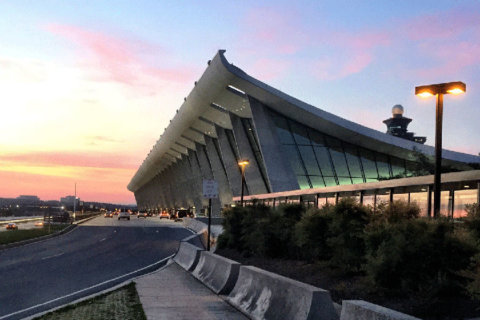A major rewrite of D.C. taxi rules in the next few months will include changes meant to move toward a more level playing field between cabs and app-based ride-hailing services such as Uber and Lyft.
Though their rapid growth has slowed in D.C., Uber, Lyft, Via and similar services carry nearly 60 million trips per year. Taxi trips have fallen sharply over the last five years to 8.8 million trips in the 12 months that ended Sept. 30.
On a financial basis, with an average cab fare under $14, that means cabs collected around $112 million in fares, while ride-hailing apps collected around $657 million in fares for trips in D.C., the Department of For-Hire Vehicles said.
“The current regulations are too restrictive and forces D.C. taxicab operators into a singular process with [a] distinctly separate set of rules that diminishes their ability to expand services and be competitive,” Yellow Cab General Manager Roy Spooner told the D.C. Council this week.
The Department of For-Hire Vehicles will be amending some of the regulations cab companies have concerns with in the next five months, said Director David Do.
“Private vehicles for hire have plateaued over the last year, and so we expect that the industry is at this equilibrium at this point,” Do said.
The regulation changes set for public comment in coming months would take the taxi rules from about 400 pages to about 200 pages, and would lift requirements that cabdrivers get medical physicals, meet dress codes and get rid of cars that are over eight years old.
The new rules would allow cars up to 10 model-years old, matching the current rules for the app-based services known in the industry as transportation network companies, or TNCs.
“There are 112 areas where we can enforce on taxis, but only about 12 areas where we can enforce on TNCs,” Do said.
Still, Spooner described some things in the regulations, such as licensing and inspection requirements, as an advantage for taxis to promote, compared to the more self-governed world of Uber and Lyft.
Recalls
The department learned this week that about 15% of the cab fleet has been covered by some type of manufacturer’s recall.
“We depend on our independent drivers and our companies to get those recall fixes,” Do said.
The department has no idea though what that number is for Uber and Lyft drivers, since D.C. law does not require similar registrations and tracking for those companies.
Tracking and repairs are left to the companies and their drivers.
Complaints
The number of complaints filed with the city has risen, as it has become easier to reach out online and through social media.
The single biggest complaint the last two years was about drivers stopping in the middle of the road and blocking traffic or bike lanes while dropping off or picking up riders.
Alternative ride services
The Transport DC program is now within budget, so there are no plans to reinstate extra restrictions on trips that had been needed in the past.
Transport DC is a service that provides rides to WMATA MetroAccess customers.
A microtransit program that creates shared rides in designated parts of the city is also getting some increasing use, with more than 25,000 trips taken between June and December.






